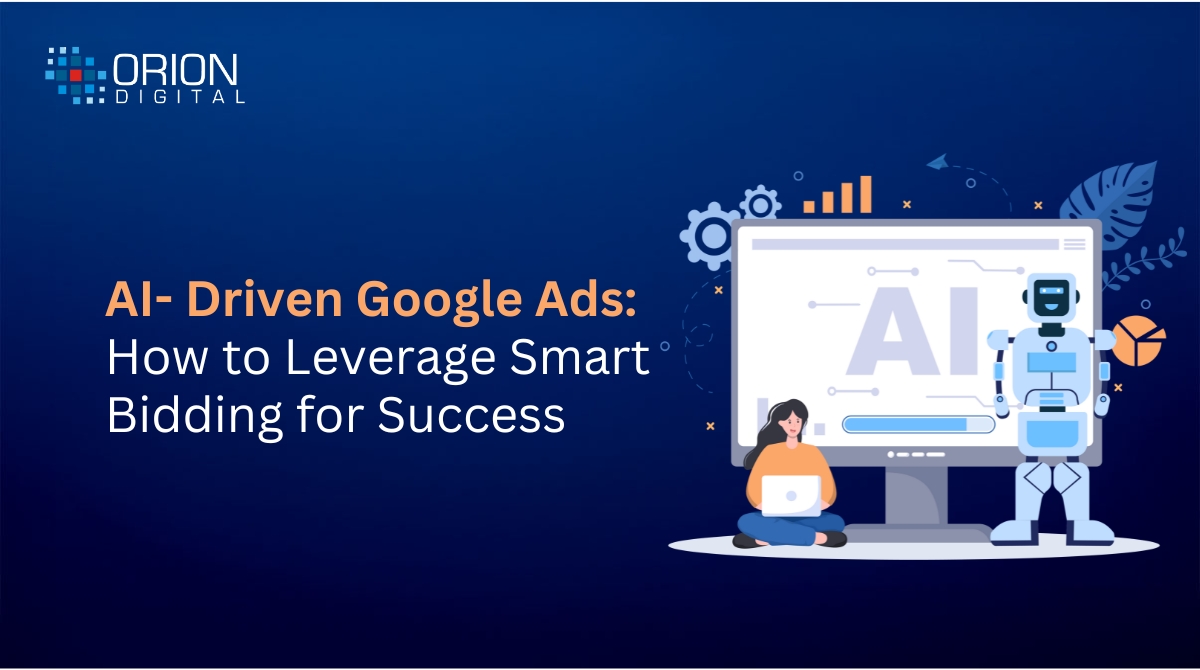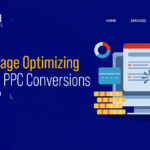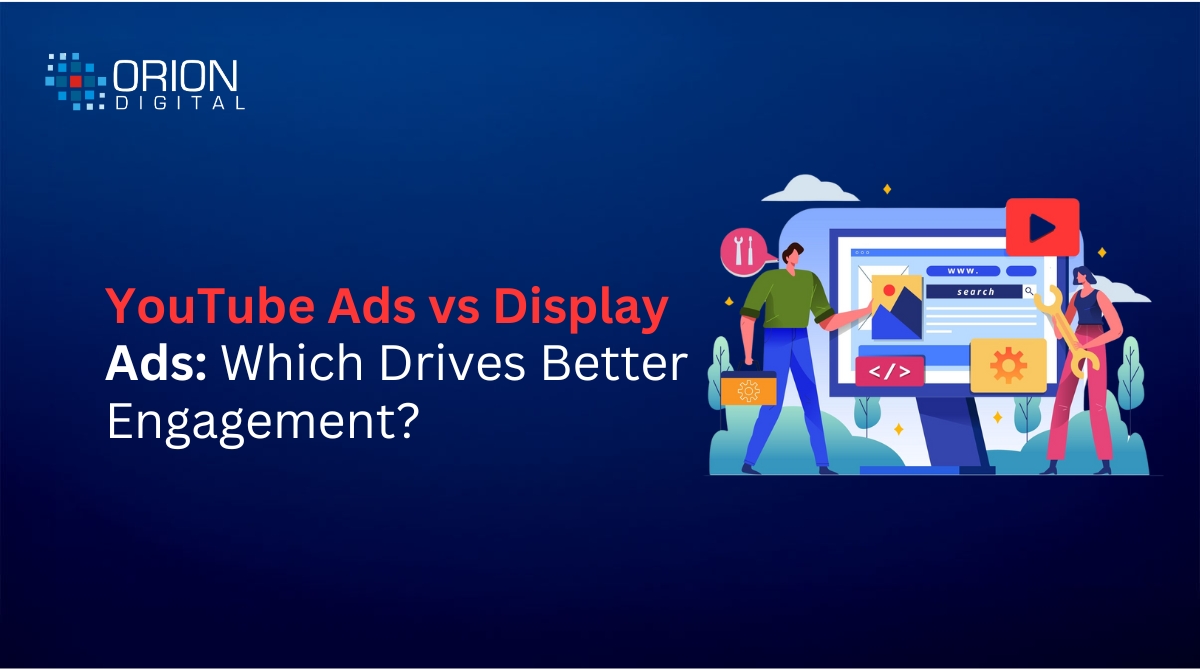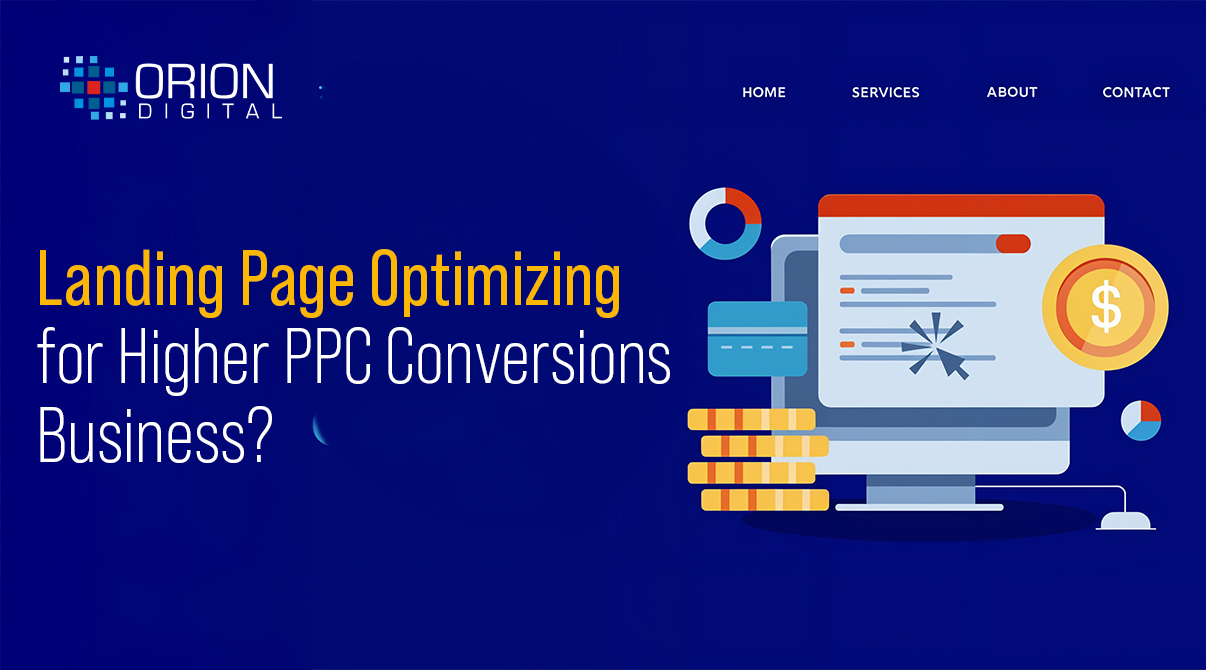
AI-Driven Google Ads: How to Leverage Smart Bidding for Success
- Naveen N
- March 26, 2025
- Google Ads
- 0 Comments
It’s critical to keep ahead of the curve in the rapidly evolving field of digital marketing. Artificial intelligence (AI) has made it easier than ever to build advertising that performs well and yields significant results, and Google advertising is one of the most potent tools accessible today. One of those AI-powered tools that can significantly impact your campaigns is Google’s Smart Bidding. However, how precisely can you maximize it? Let’s dissect it collectively.
What Exactly is Smart Bidding?
Smart Bidding is a collection of automated bidding strategies in Google Ads that use machine learning to manage your bids in real time. Instead of manually adjusting bids and settings, Google’s technology takes into account things like past data, user behavior, devices, and much more to ensure that your ads are shown at the right time to the right people.
Just think about having a genius assistant that would, in a split second, decide how to provide you with the best value for your ad spend. That is basically what Smart Bidding does—it all remains under the hood to help you win more valuable clicks and conversions without all the constant manual fiddling.
Types of Smart Bidding Strategies You Can Use
Google Ads provides a number of Smart Bidding strategies that suit different campaign objectives. Here’s a breakdown of the most widely used ones:
- Target CPA (Cost Per Acquisition)
It’s perfect for those who need to drive conversions for a set cost. You designate a target CPA, and Google’s machine learning optimizes your bids to deliver maximum conversions with that budget. It’s all about being efficient while achieving your cost targets.
Example: Suppose you’re operating an e-commerce website offering accessories and want to buy customers for $5 per conversion. With Target CPA, Google will assist you in keeping within the $5 limit, optimizing your bids to acquire more conversions at that price.
- Target ROAS (Return on Ad Spend)
For those more interested in getting the most money possible in terms of revenue compared to simply attempting to get the most conversions you can, Target ROAS is the way to go. With this, you define a target return on ad spend (you want $5 in revenue per $1 of spend, for example), and Google will manage bids to attempt to hit your target.
Example: If you’re operating an online shop selling expensive watches, your objective may be to earn higher revenue per conversion. Target ROAS will emphasize higher-value conversions (such as a person purchasing an expensive watch) and invest less in smaller, low-value transactions.
- Maximize Conversions
This tactic is ideal if you want to acquire as many conversions as possible, without regard to expenditure. Google machine learning will optimize bids for you automatically so that you can get maximum conversions from within your allocated budget.
For instance, suppose that you are a local fitness club with an advertisement campaign to capture sign-ups to fitness classes. By selecting Maximize Conversions, you instruct Google to achieve as many sign-ups as you can within your budget.
- Maximize Conversion Value
If your business entails fluctuating values for conversions, such as an online store that offers both cheap and high-priced products, Maximize Conversion Value is perfect. Google will maximize bids to emphasize higher-value conversions.
Example: For an auto dealership business, leads could be for less expensive vehicles, and others could be for more expensive luxury vehicles. Maximize Conversion Value will assist you in prioritizing bids for users who are likely to drive higher revenue.
- Enhanced Cost Per Click (eCPC)
eCPC is a less rigid approach wherein you still create manual bids, but Google modifies them in real time according to how likely a conversion is to be. It’s a fabulous middle ground between manual and totally automated bidding.
Example: You have a small SaaS company and prefer to manage bids manually but still take advantage of Google’s AI to assist in refining them for improved conversion opportunities. eCPC dynamically adjusts your bids to achieve improved outcomes while maintaining some degree of manual control.
Why Should You Care About Smart Bidding?
If you’re still into manual bidding, you may be leaving cash on the table. Here’s why Smart Bidding is a game-changer:
- It Saves You Time
Manual bidding is a time consumer, particularly when dealing with numerous campaigns. Smart Bidding automates it for you, giving you more time to think about strategy and creative elements of your campaigns.
- It Uses Data to Your Advantage
Google’s machine learning has access to copious amounts of data—way more than is possible for humans to process in real-time. Smart Bidding uses this information to make logical decisions, even changing bids by who is best likely to convert.
- Real-Time Adjustments
In contrast to manual bidding, Smart Bidding adjusts in real-time. Time of day, location, device, and user behavior are all things that can influence whether a user is likely to convert, and Smart Bidding considers all of these signals to optimize your bids in real-time.
- It Scales Easily
As your campaigns expand, it becomes increasingly difficult to manually bid on each one. With Smart Bidding, you can grow your campaigns without the extra complexity. Google will keep optimizing your bids based on fresh data so that you can continue to get efficient performance.
Tips for Getting the Most Out of Smart Bidding
While Smart Bidding is magic in action, there are some steps you can take to make sure you’re optimizing for the best results:
- Set Clear, Attainable Goals
It’s crucial to establish clear goals, such as your desired CPA or ROAS, before you leap into Smart Bidding. If your goals are overly optimistic, it might create inefficiencies. Begin with a sensible target, and then continue to refine it as you have more data.
- Give It Time to Learn
AI must have data to get better, and Smart Bidding is no exception. When you initially begin utilizing it, it may take a few weeks for the system to obtain sufficient data to make completely optimized choices. Wait patiently and give the system time to learn.
- Monitor, But Don’t Micromanage
While Smart Bidding does a lot of the heavy lifting for you, it’s still a good idea to monitor what your campaigns are doing. Monitor the important metrics, but don’t fall into the trap of micromanaging everything. Let the AI work its magic.
- Have Enough Data
To be able to use Smart Bidding successfully, it requires sufficient data in order to make intelligent decisions. If your campaign is new or has not generated enough conversions, you might need to wait until you have accumulated more data before you can entirely depend on Smart Bidding.
Example: Smart Bidding in Action
Suppose you own an online bookshop and wish to generate additional sales for your new title. This is how you could employ Smart Bidding:
Strategy: You choose Target ROAS as you wish to achieve maximum revenue.
Outcome: Google’s AI will bid more for users who are more likely to buy the new release at full price, favoring these higher-value sales while bidding less on users more likely to buy cheaper books.
Final Thoughts
Smart Bidding in Google Ads is like having a smart helper that can assist you in extracting the best possible value from your ad budget. With AI-enabled automation and bid optimization in real-time, you can concentrate on expanding your business while Google takes care of the heavy lifting. Whether you are interested in generating conversions, enhancing your ROI, or maximizing sales, Smart Bidding can enable you to achieve your objectives more efficiently and with higher accuracy.
At Orion Digital, we assist your business in leveraging the power of Google Ads and Smart Bidding. Are you ready to elevate your campaigns to the next level? Let’s collaborate in making that a reality!




